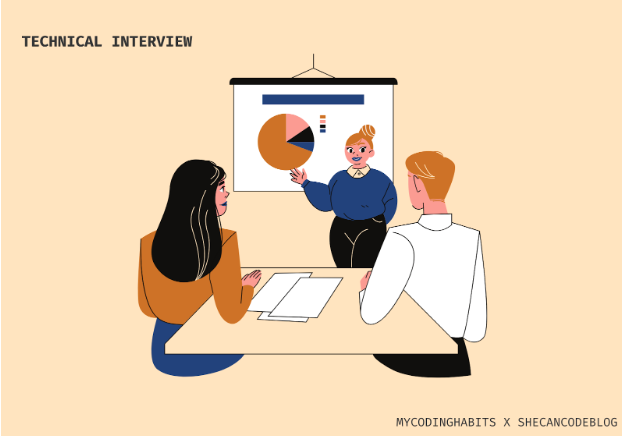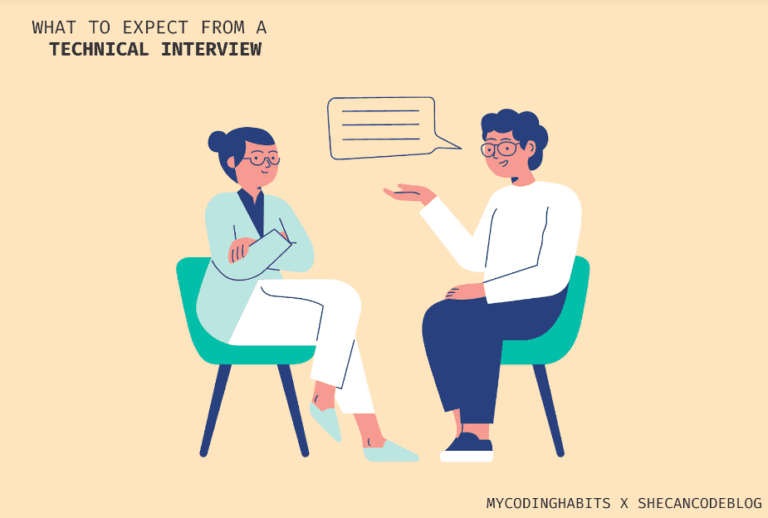I have been to a few tech interviews in my career, and they can be quite different from most interviews you might have encountered. In this article, I will explain what to expect, so you are well-prepared. I will also include some resources, along with 6 Ways YOU Can Help Make Tech More Diverse and Inclusive, to help you prepare and successfully navigate the interview stages mentioned.
From my experience, most technical interviews are divided into 3 stages. You might get some that are longer than this, but all interview stages would cover some aspect of the following.
- Phone interview
- Technical interview
- Company/Culture Match Interview
Phone Interview

This is the initial stage of the interview process; it’s normally a bit more casual. It’s a screening process that helps filter the candidate list to candidates that have a real chance of actually landing the job.
For this round, you might find that you are speaking to a Recruiter or Hiring Manager. Here are some questions you might get asked:
- Tell me about your current role
- What tech stack you use
- What you are looking for in your next role
- What your notice period is like
- What your salary expectations are
- If you have any questions about the company
- They might quiz you on what you have found out about the company, etc
Technical Interview

In this stage, depending on the company, it can differ. There could be multiple technical rounds or just one. Or you might have an interview with your potential technical lead and another developer where they quiz you about your technical expertise and ask you the details about the projects you described in your CV.
This is by far the scariest round for some. This is because it’s hard to know if you will be asked to whiteboard the next Uber app without using google or just answer technical questions about the role you are applying for.
In some instances, for this round, I have taken home projects or technical challenges that had a time limit to complete them. These are often not bad because it reduces the pressure you might feel while performing in real-time. I have also been asked to pair programme with another developer: imagine the nerves I was feeling! My intention here is not to scare you from this stage of the interview, but it’s to prepare you for what to expect.
So the question still remains, what should I expect from the technical round? It’s hard to tell because different companies conduct this round in different ways. So my best advice is to ask as many questions as possible to the Recruiter or Hiring manager about the interview process and prepare accordingly. Now that you have an idea of what might come up, you have better questions to ask.
If I were in your shoes here are some of the steps I would take to prepare:
- Study the job description, and depending on your entry-level make sure you can answer both the simple and tough questions
- Use Glassdoor, check for the company, and see if other candidates have left useful questions that might get asked in the technical round
- Practice common data structures and algorithm questions , you don’t have to complete the whole list, but practice a few. You never know what similar questions might come up.
Company/Culture Match Interview

In this round, you might have an interview with more senior members of the team (CEO/CTO), some more behavioural questions that have to do with how you work in a team. This is your opportunity to sell yourself as a person. The best strategy to use in this round is to structure your answers using the STAR method.
S – Situation
T – Task
A – Action
R – Result
Using the STAR method to answer behavioural questions covers all aspects a typical interviewer will be looking for in your answers. So make sure you do some research on common behavioural questions asked and apply the STAR method to your answers. Don’t forget to practice.
Resources
Here are some useful resources that will help you prepare for the next tech interview:
- Read some tips on how to ace the coding interview
- A guide to the ultimate sales pitch that answers the question “Tell me About Yourself”
- Use the interview cake to get good at programming interviews
- Start practicing the live interviews for FREE with Pramp
In conclusion, the interview process for tech jobs can sometimes be rigorous; it’s important to realize that interviewing is a skill. Once you learn what’s required of you, just like building any skill, you become more confident. Good luck!







